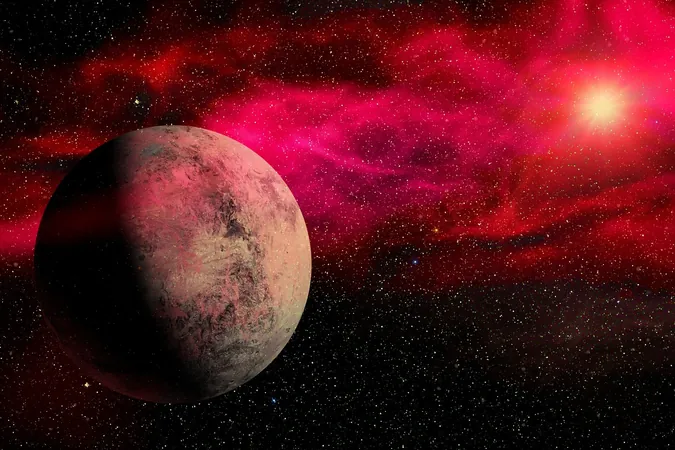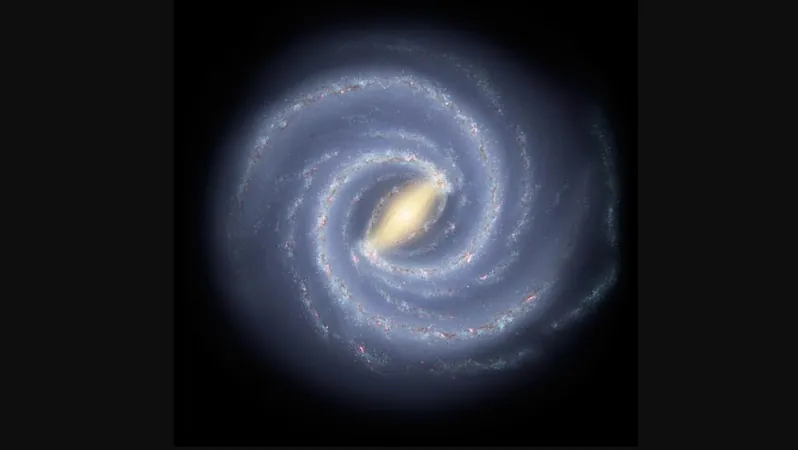
Are We Overestimating Our Search for Exoplanets? A Statistical Wake-Up Call!
2025-06-30
Author: Sophie
The Great Exoplanet Debate: Are We Miscalculating?
In the thrilling world of exoplanet research, a groundbreaking discussion is stirring up excitement and concern. Recent revelations from two eminent astronomers, David Kipping of Columbia and Björn Benneke of UCLA, suggest that the community might be misrepresenting the chances of discovering planets akin to Earth or signs of potential life.
Their new paper, uploaded to the arXiv preprint server, takes a critical look at how their fellow scientists have been interpreting statistics for years. As researchers delve deeper into space, the stakes are incredibly high—not just for science but for humanity's place in the cosmos.
Statistics: The Backbone of Space Discovery
You might think of statistics as dry and complex, but in astrophysics, it's essential. Establishing the existence of celestial bodies demands solid statistical backing. To achieve 'statistical significance,' researchers must rely on established mathematical frameworks like Bayes' theorem. The challenge lies in effectively communicating these findings to a public eager to grasp the wonders of the universe.
The Clash of Statistical Worlds
Kipping and Benneke highlight a crucial disconnect between two statistical approaches: Bayesian and frequentist methods. Bayesian stats consider the likelihood of an event occurring versus it not happening, while frequentist stats focus on the rarity of an event’s occurrence—often discussed in terms of 'sigma' values.
The term 'sigma' gained notoriety during the Higgs boson discovery at the Large Hadron Collider, popularizing the discussion of statistical significance in scientific circles.
A Typographical Error with Major Implications
The authors point out that a key formula for translating Bayesian statistics into frequentist terms was established in earlier papers. However, a typographical mistake in a 2013 follow-up could have misled many researchers. It mistakenly indicated an 'at least' threshold for significance when it should have stated 'at most,' potentially clouding interpretations about the validity of findings.
Recent Findings Under Scrutiny
For instance, the recent detection of dimethyl sulfide (DMS) in the atmosphere of exoplanet K2-18b raised eyebrows. Kipping and Benneke argue that claims regarding its significance should have been tempered, suggesting a rephrasing to indicate 'less than 3-sigma' significance. This isn't merely semantics—it could shake the foundations of confidence in our search for extraterrestrial life!
A Call for Better Practices
So, what can be done to clear the fog of confusion? While there are more robust methods available for converting statistical approaches, Kipping and Benneke advocate embracing Bayesian factors more directly. Contrary to popular belief, the public is indeed familiar with the concept of 'odds'—it's commonplace in gambling.
This fresh perspective challenges us all to rethink how we represent discoveries in exoplanet science. As humanity gazes toward the stars, accurate and transparent communication about the search for life beyond our planet is more crucial than ever.









 Brasil (PT)
Brasil (PT)
 Canada (EN)
Canada (EN)
 Chile (ES)
Chile (ES)
 Česko (CS)
Česko (CS)
 대한민국 (KO)
대한민국 (KO)
 España (ES)
España (ES)
 France (FR)
France (FR)
 Hong Kong (EN)
Hong Kong (EN)
 Italia (IT)
Italia (IT)
 日本 (JA)
日本 (JA)
 Magyarország (HU)
Magyarország (HU)
 Norge (NO)
Norge (NO)
 Polska (PL)
Polska (PL)
 Schweiz (DE)
Schweiz (DE)
 Singapore (EN)
Singapore (EN)
 Sverige (SV)
Sverige (SV)
 Suomi (FI)
Suomi (FI)
 Türkiye (TR)
Türkiye (TR)
 الإمارات العربية المتحدة (AR)
الإمارات العربية المتحدة (AR)